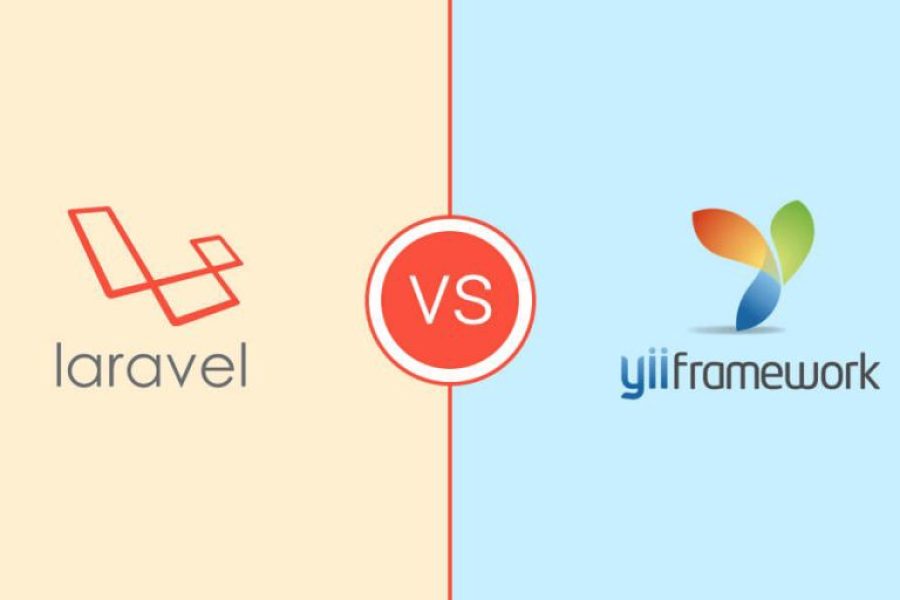The greatest platform for building sophisticated and secure applications is PHP. Being one of the first Web programming languages, PHP has a number of frameworks that are helpful for creating current applications. The sizes and shapes of these frames are varied. It’s crucial to be familiar with all of these frameworks if you work on web apps so you can pick the best one out of the bunch. For competitive characteristics, such as Laravel vs. Symfony, Symfony vs. Code ignitor, etc., it is worthwhile to compare these frameworks. Here is a comparison of Laravel and Yii so you can decide which one is best for your web development.
Yii
For creating web applications, Yii is a popular PHP framework available for free. Yii includes features such as database aspect objects, MVC, Ajax-based widgets, DB migration, and many others. The framework is compatible with jQuery, so a web development company can easily use it.
Laravel
The most attractive PHP framework is Laravel, which boasts functionalities like composer support, simple emailing, and nimble controllers. The framework makes use of both straightforward and expressive syntax for creating applications. Laravel is designed to produce precise and intricate modules.
Comparing Laravel vs Yii
Project setup
Yii framework outperforms Laravel when comparing project setup, despite the fact that both provide a straightforward installation method. Yii only requires that you download the program and launch the application. You can have a simple, successful installation with no issues. Additionally, it features a separate back-end and front-end that you can use to build an admin area and user-facing website.
Using Composer, a PHP package management, or the Laravel Installer, there are two ways to install Laravel. With a standalone command-line tool, Laravel’s straightforward helper expedites installation.
Extensions
It is possible to make up for a framework’s shortcomings with the help of its extensions.
When contrasting Laravel vs Yii, both offer a tone of fantastic extensions. Through a variety of extensions, the main components of Laravel can completely replace or have their behavior altered. In a similar vein, the Yii community has developed a sizable number of extensions that provide a tonne of helpful capabilities.
Security
Security is a crucial issue to take into account when comparing Laravel with Yii. Both frameworks have techniques to safeguard against Cross-Site Scripts, Sql Injection attacks, Cross-Site Request Forgery, and other security threats. Role-based access control, a feature-rich user access filter, and authentication extensions like OAuth, OpenID, or OAuth 2, among others, are some of Yii’s significant security features.
Position access restrictions, ACL plugins, and access control filters are just a few of the security capabilities that Laravel offers. Although Laravel lacks commercial access control tools, this does not imply that its security features are lacking. With the aid of its innumerable expansions, you can resolve this problem.
Migration
Both of these platforms come with top-notch migration tools that let programmers set up their working environment in a simple and practical method. They can also add seeders with Laravel, which facilitates quick and easy first data transfer. For testing and populating static directories, this capability provides excellent help. On the other side, developers using Yii can only do this through migrations.
Validation of Forms
Yii’s form validation takes longer than Laravel’s because Laravel has a distinct validator class that allows developers to carry out form validation everywhere, at any time. You may also use custom methods to extend the Eloquent class for convenience and unified functionality. One drawback is that when defining characteristics with prefilled properties obtained from various situations, you have to adjust the code.
It coupled the class of a model or form with the platform for form validation that is specific to the Yii framework. You can configure Active Record with the rules for the validating to be done when the information is received directly.
Additionally, you must either create a unique class for it or use custom validation scripts if another form is changing the data in a model. This technique works great up until the point where you don’t need to use Laravel’s validator, which lets you check some measured values in the controller.
Testing
When it comes to testing, Yii will be able to offer a wide range of tools that may be applied to the process. Codeception testing and PHP unit testing are not supported, though. However, the Laravel framework offers a variety of testing tools that are adequately enabled by the framework.
Conclusion
Whichever you choose, Laravel or Yii, you can’t go wrong. Both are equally powerful and provide a solid development experience. This means that the actual choice may come down to personal preferences of development style or even the particular features that you want to take advantage of. For example, if your focus is on eCommerce, you might choose Yii. However, if your focus is on being agile, then Laravel may be the better choice for you.

